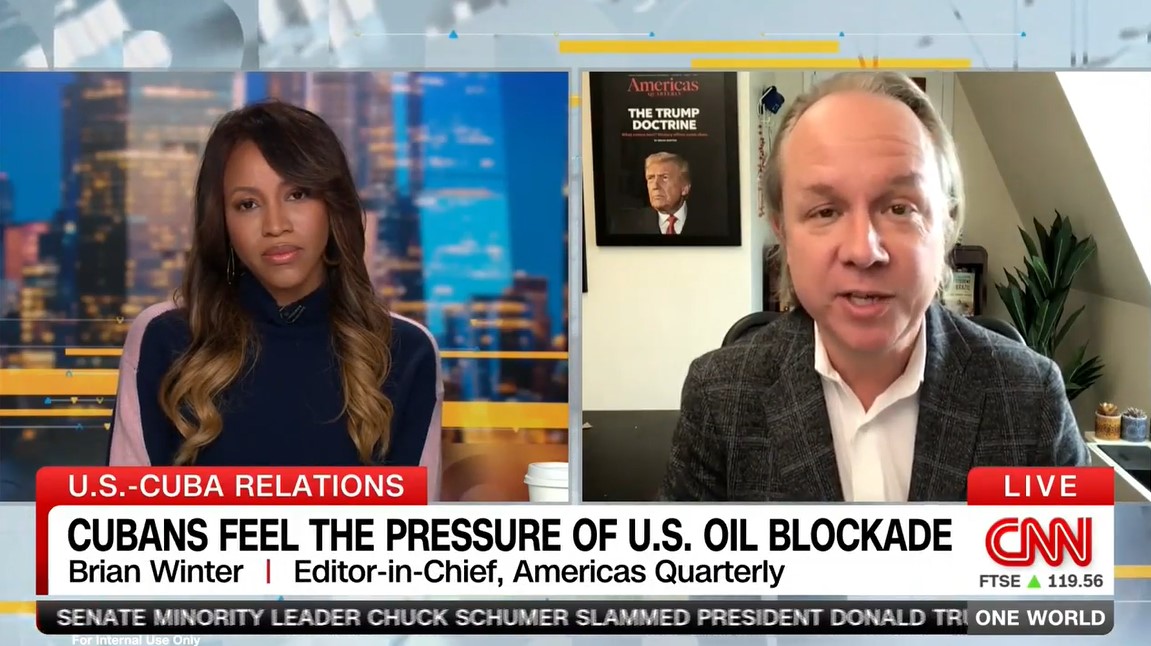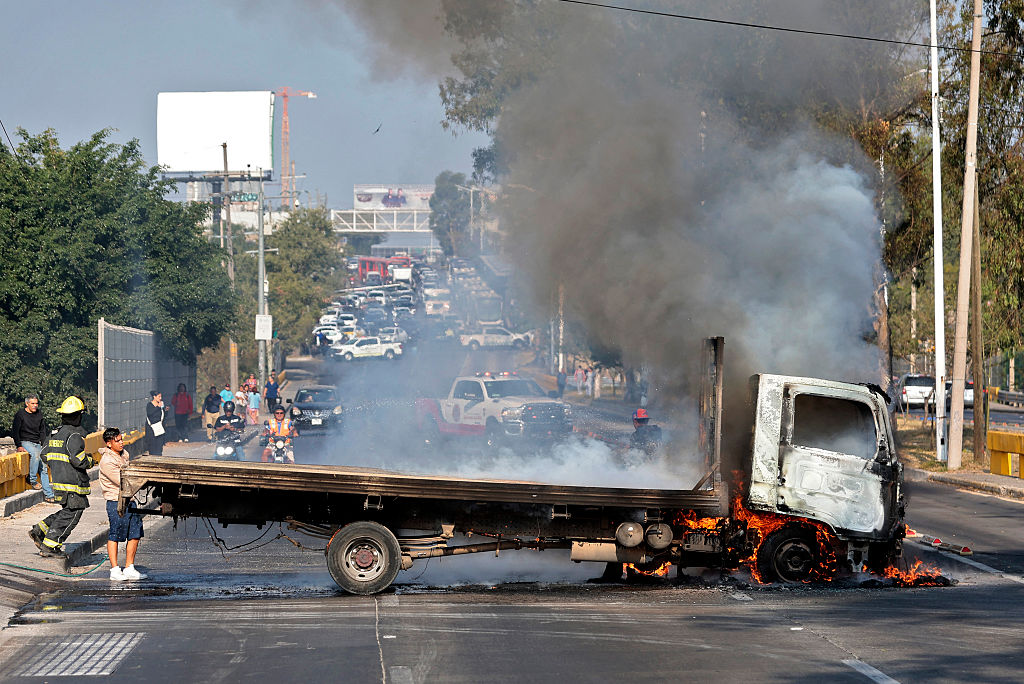Five Points to Watch on the North Korea-Cuba Missile Connection
Five Points to Watch on the North Korea-Cuba Missile Connection
Panama stopped a North Korean ship for carrying a Cuban missile shipment. AS/COA's Christopher Sabatini outlines the background—and what could happen next.
The President of Panama Ricardo Martinelli revealed on July 16 that the government had stopped a North Korean ship, the Chong Chon Gang, attempting to cross through the Panama Canal while allegedly carrying unregistered missile equipment from Cuba.
AS/COA Senior Director of Policy and Editor-in-Chief of Americas Quarterly Christopher Sabatini outlines the background of the incident—and what could happen next.
1. Is this unprecedented? There have been persistent reports of North Korean-Cuban collaboration and high-level contacts on matters of weapons technology and missiles since 1991. In 2002, then-President of Cuba Fidel Castro called for closer ties with North Korea when he wished then President of North Korea Kim Jong-il a happy sixtieth birthday. Now, with Fidel Castro’s brother Raúl leading Cuba and Kim Jong-il’s son Kim Jong-un ruling North Korea, that collaboration has continued. (Government is very much a family affair in both countries; the Kim dynasty has ruled North Korea since 1948 at the time that the peninsula was divided into north and south, and the Castro brothers have ruled Cuba since coming to power in a 1959 revolution.)
In late June and early July, one of North Korea’s top generals, Kim Kyok-sik, visited Havana and met with Cuban military officials. At the time he said—in a reflection of both countries’ antagonistic relationship to the United States—that Cuba and North Korea shared “the same foxhole.”
2. How close are the two countries? The regimes share the same top-down, autocratic control over their societies, and have effectively been willing to sacrifice human rights, political freedoms, and even economic development to remain in power and impose failed, collectivist economic policies. But Raúl Castro is much more pragmatic than his counterpart on the other side of the China Sea. In April, Kim Jong-un, the grandson of the founder of North Korea, engaged in a bizarre and unrealistic series of threats against the United States, claiming that he would rain nuclear missiles down on U.S. soil. In fact, intelligence reports indicate that North Korean missiles lack the capacity to reach U.S. territory. And there has been no sign that the North Korean government is willing to change economic policies that have led to mass starvation and malnourishment.
In contrast, diplomatically, while Raúl Castro has engaged in public displays of yanqui bashing, the younger Castro has very tactically held out public offers to improve direct relations with the United States and has even started discussions on re-establishing mail service and on migration policy. Domestically, too, Raúl Castro has launched a series of modest, tentative reforms to loosen state control over the economy to “update” the socialist model.
3. So, does this mean Raúl Castro’s overtures to the United States have been a ruse? The Cuban regime has always been a master at public relations. While Cuba’s struggling economy desperately needs the hard currency that would come from greater U.S. investment and tourism, the regime would not open up if it came with a risk of losing control over society and the direction of the government. If the Cuban government were truly serious about improving relations, there were a number of things it could do to show its good will, including releasing U.S. citizen Alan Gross. But even within that context, Cuba has always placed protecting its own security as its primary goal—and with good reason, after multiple attempts by the United States to remove the Castro regime or destabilize the country. That was the justification for the Cuba accepting the construction of Soviet missile sites that provoked the Cuban Missile Crisis in 1962.
4. Why did they collaborate with North Korea on this? We still need to know all the facts. One possibility is that Cuba was sending missiles and technology to North Korea to help it develop its own weapons and air-defense systems. Another is that these were Cuban missiles and weaponry being sent to North Korea for servicing and were to be shipped back once repaired. Either way, this will be seen by the United States as a violation of the UN sanctions placed on North Korea after it refused to cooperate with nuclear weapons inspections.
5. How is the U.S. likely to respond? Of course, this will depend on the facts of the case, but given the hothouse climate in which U.S. policy toward Cuba gets debated and contested, this will likely mean pressure to suspend the direct negotiations with the Cuban government and make any further loosening of the U.S. restrictions on contact with Cuba—as occurred in the first Obama administration—more difficult.
And the talk of removing Cuba from the U.S. State Department’s State Sponsors of Terrorism List? You can forget about that for now.
To speak to an expert on this topic, contact alarotta@as-coa.org.








